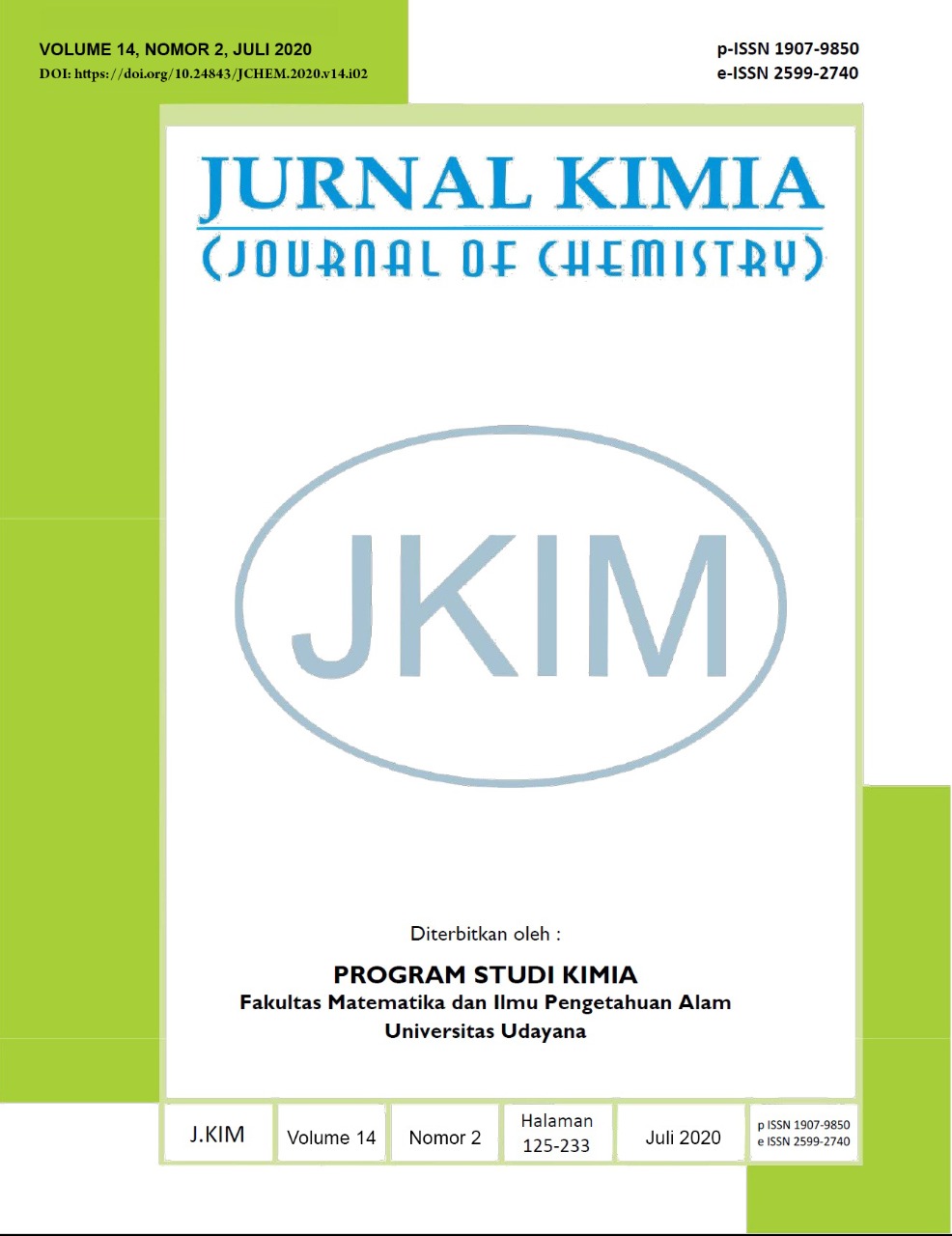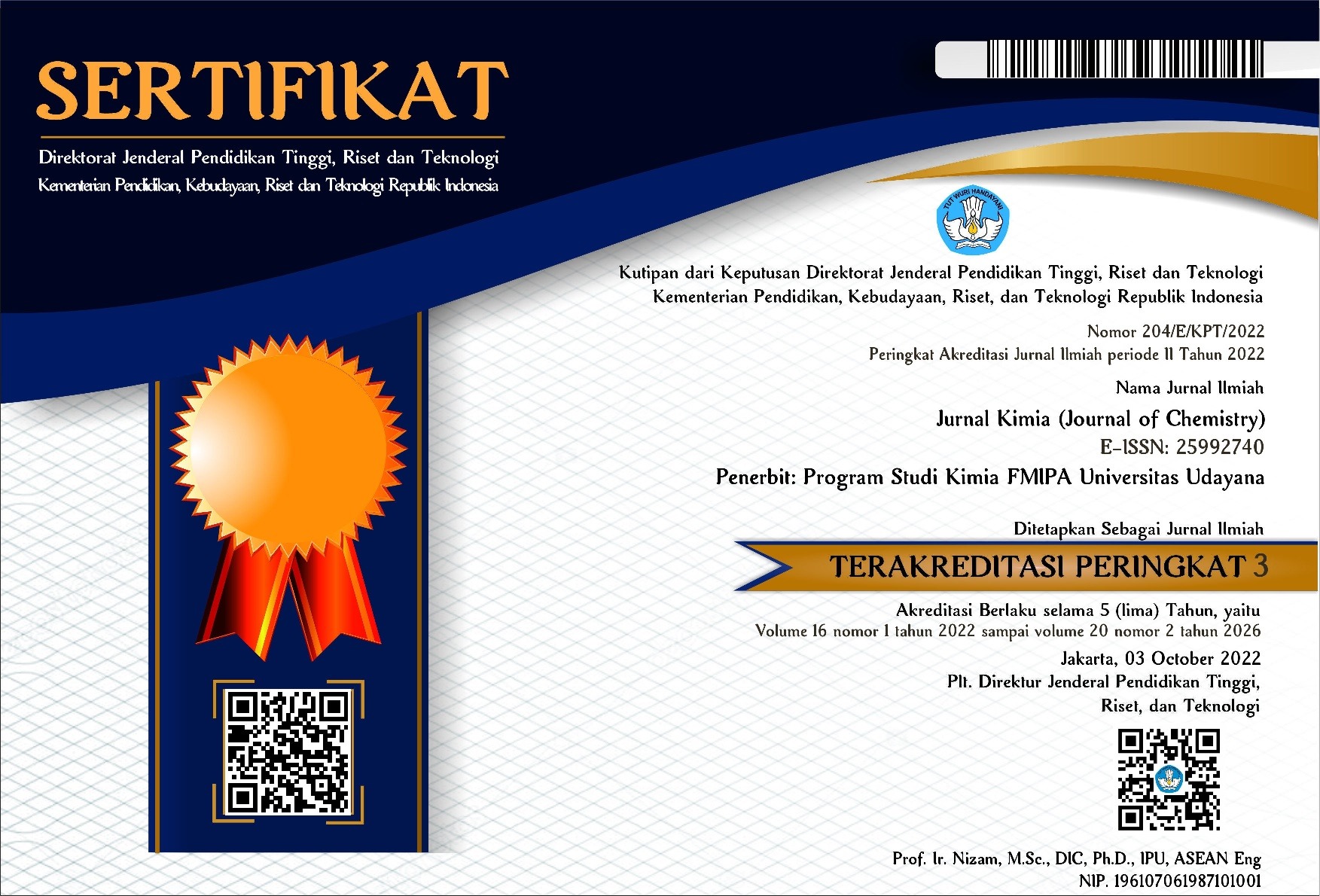OPTIMASI PROPILENGLIKOL DALAM FORMULASI SIRUP EKSTRAK RIMPANG JAHE SEBAGAI OBAT BATUK
Abstract
Ginger (Zingiber officinale) has a pharmacological effect to be an antitussive which has been proven empirically and through in vivo activity testing. The use of ginger directly has a spicy and bitter taste, so it is not very popular. Based on this, it is necessary to formulate it into syrup preparation which has met the physical stability test to obtain the best formula. In this study, ginger rhizome water extract that had been standardized and screened was formulated into syrup preparations. The formulation was carried out by optimizing the amount of propylene glycol as co-solvents and anti-cap locking which was 15, 20, and 25% of syrup preparation. The results showed that the concentration of propylene glycol in ginger rhizome extract syrup preparation affected the physical stability of the preparation. The three formulas obtained have not met the physical stability tests (pH and viscosity), but formula 3 with 25% of propylene glycol was the optimum formula of ginger rhizome syrup.
Keywords: Antitussives, Ginger (Zingiber officinale), Syrup, Propylenglycol, Viscosity
Rimpang jahe (Zingiber officinale) memiliki efek farmakologi sebagai antitusif yang telah dibuktikan secara empiris dan melalui uji aktivitas secara in vivo. Penggunaan jahe secara langsung memiliki rasa pedas dan getir sehingga tidak begitu disukai. Berdasarkan hal tersebut maka perlu diformulasikan ke dalam sediaan sirup yang telah memenuhi uji kestabilan fisik untuk memperoleh formula terbaik. Pada penelitian ini, ekstrak air rimpang jahe yang telah terstandar dan telah dilakukan skrining diformulasikan menjadi sediaan sirup. Formulasi dilakukan dengan optimasi jumlah propilen glikol yaitu 15, 20, dan 25% sebagai kosolven dan anti-caplocking terhadap sediaan sirup. Hasil yang diperoleh adalah konsentrasi propilenglikol dalam sediaan sirup ekstrak rimpang jahe berpengaruh terhadap stabilitas fisik sediaan. Tiga formula yang dikerjakan belum memenuhi persyaratan uji kestabilan fisik, namun formula 3 dengan 25% propilen glikol merupakan formula terbaik dari sirup rimpang jahe.
Kata kunci: Antitusif, Rimpang jahe (Zingiber officinale), Sirup, Propilenglikol, Viskositas
Downloads
References
Bera, K., Nasalova, G., Sivova, N. and Ray, B. 2016. Structural Elements and Cough Suppressing Activity of Polysaccharides from Zingiber officinale Rhizome. Phytotherapy Research. 30: 105–111.
Endarini, L. H.. 2016. Farmakognosi dan Fitokimia. Jakarta: KemenKes RI.
Harbone, J. B, 1987. Metode Fitokimia, Penuntun Cara Modern Menganalisis Tumbuhan, Edisi Kedua. Penerbit ITB, Bandung, 69-76.
Hernani, Winarti, C. dan Marwati, T. 2009. Pengaruh Pemberian Ekstrak Daun Belimbing Wuluh Terhadap Penurunan Tekanan Darah Pada Hewan Uji. Jurnal Pascapanen. 6(1): 54-61.
Khare, C. P. 2007. Indian Medicinal Plants. New Delhi: Springer Science + Business Media, LCC.
Kritikar K. R, Basu B. D. 2007. Indian Medicinal Plants. Dehradun, India: International Book Distributers. Vol. 4. 2nd ed.
Kumar, G., L. Karthik, K. V., and Rao, B., 2011. A Review on Pharmacological and Phytochemical Properties of Zingiber officinale Roscoe (Zingiberaceae). Journal of Pharmacy Research. 9(4): 2963-2969.
Murtini, Gloria. 2016. Farmasetika Dasar. Jakarta: Kementrian Kesehatan Republiki Indonesia.
Rahmatini. 2010. Evaluasi Khasiat dan Keamanan Obat. Majalah Kedokteran Andalas. 34(1).
Ross, I. A. 2005. Medicinal plants of the world.New jersey, USA: Humana press.
Sukarman. 2013. Production and Management of White Big Ginger (Zingiber officinale) Through Seed Industri. Jurnal Litbang Pertanian. 32(2): 76-88.
Uddin, H., Khalid, R. S., Alaama, M. A., Abdualkader, M., Kasmuri, A., and Abbas, S. A. 2016. Comparative study of three digestion methods for elemental analysis in traditional medicine products using atomic absorption spectrometry. Journal of Analytical Science and Technology. 7(6): 1-7.

This work is licensed under a Creative Commons Attribution 4.0 International License






